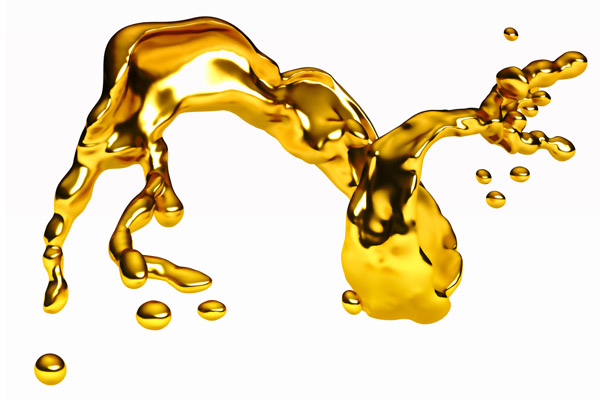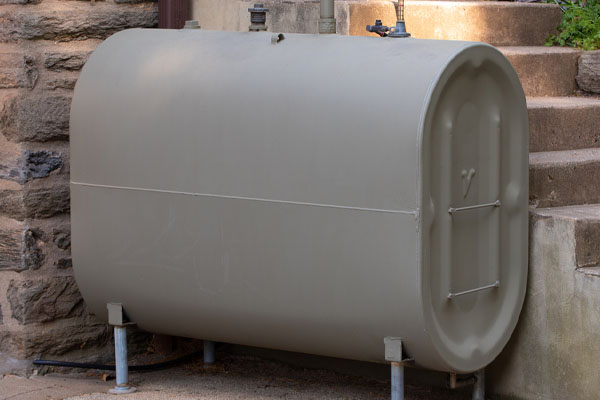What is the Purpose of Heating Oil Additives?

Roughly 5.5 million people in the country rely on oil to warm their homes. 81% live in the Northeastern region. The oil tank is an indispensable part of their heating system for these individuals. Many wonder about the best practices for maintaining both their home heating oil and oil tanks. While some have already adopted the use of heating oil additives, others are curious about them. This article delves further into the topic of fuel oil additives.
Different Kinds of Heating Oil Additives
Contents
Heating oil additives are specifically formulated substances designed to enhance the efficiency of heating oil burners. These additives work to optimize combustion, resulting in a cleaner and more effective operation of your heating system.
Home heating oil comes in four primary types:
- Stabilizers: Stabilizers safeguard the heating oil from deterioration caused by external environmental factors, including the inclusion of antioxidants.
- Water Controllers: Water controllers are designed to mitigate issues from water condensation within the tank. They help maintain system integrity.
- Biocides: Biocides treat and prevent microbial growth, ensuring the fuel remains uncontaminated.
- Line and Oil Nozzle Cleaners: These cleaners help purify the fuel delivery line that conveys oil from the tank to the burners. They eliminate any accumulation of sludge at the bottom of your tank that may have developed over time.
Related Article: How to Read Your Heating Oil Tank Gauge
What Do We Use Heating Oil Additives For?

Let’s start by exploring the reasons why additives have become a necessity. It is important to understand that you are using refined crude oil for your heating system.
Today, crude oil processing has evolved significantly from how it was done in the past. This is due to environmental considerations and the increasing demand for low-sulfur diesel. These changes have had a noticeable impact on the stability and carbon residue content of the fuel. To counteract these effects and enhance the fuel’s properties, manufacturers have substantially improved the chemical composition of these additives.
If you have encountered any of these issues, it might be time to use heating oil additives:
- Freezing of the oil tank.
- High rates of fuel consumption.
- Accumulation of sludge.
- Blockages in the fuel lines.
How Do Fuel Oil Additives Work?
Oil undergoes transformations during the refining process. This leads to the development of impurities within the fuel. These impurities may include dirt, soot, water droplets, and other particles that can impact the integrity of your oil tank. When impurities accumulate in the tank, the efficiency of your heating system can be compromised.
Additives play a crucial role in addressing this issue by eliminating impurities and restoring your system to peak efficiency. These additives aid in the emulsification of water droplets. They help in preventing and reducing bacterial growth. Their chemical composition enables them to break down dirt or soot. This allows these impurities to pass through the tank’s filter without causing any clogs. Additives also have the ability to condense pollutants, making it possible to burn them off and eliminate them from the system.
Related Article: Oil Tank Condensation: What You Need To Know
Common Issues Fixed by Heating Oil Additives

The key question at hand revolves around the cost-effectiveness of oil additives. To shed light on this matter, let’s explore several challenges you might encounter and the corresponding solutions.
Clogged Burner Nozzle
The burner nozzle plays a crucial role in spraying the oil. When chemical components like carbon accumulate in the tank’s burner nozzle, it leads to clogs that hinder the efficient burning of fuel.
Fortunately, many additives contain cleaning agents specifically designed to dissolve chemical build-ups. As a result, your burner nozzle can operate with increased efficiency when these additives are used.
Related Article: Oil Tank Condensation: What You Need To Know
Excess Condensation

When a tank experiences excess condensation, the internal components may become susceptible to rusting and the growth of bacteria. However, these additives can effectively emulsify water droplets and prevent bacterial growth.
Certain additives can reduce larger volumes of water within the system. It helps prevent rusting issues that could lead to further complications.
Related Article: Can I Put Diesel Fuel in My Home Heating Oil Tank?
Gelling
Cold temperatures can contribute to the problem of oil gelling. This can prevent the smooth flow of oil from the tank to the burner, resulting in frequent clogs in the fuel line, filters, and nozzles.
Anti-gelling additives are designed to lower the temperature at which gelling takes place. This is particularly advantageous for people residing in colder regions, as it helps prevent gelling issues and ensures a more reliable heating system.
Buildup of Sludge in the Oil Tank
Accumulation of sludge at the bottom of your tank often results in clogs in your filters and fuel line. This buildup significantly diminishes the tank’s capacity to generate heat and may even lead to malfunctions or a complete shutdown of your heating system. If you need to turn off your heat to prevent clogs during fuel delivery, it clearly indicates sludge issues within your tank.
To address this problem, there are additives specifically formulated to dissolve sludge buildup in your heating oil. These additives not only assist in dissolving the sludge but can also absorb any sludge present so that it can be burned off and your tank can return to its normal operational efficiency.
Related Article: How To Choose The Best Home Heating Oil Delivery Company
Disadvantages of Using Heating Oil Additives
Although the benefits of using heating oil additives outweigh the drawbacks, it is still essential to be aware of the negatives:
- Oil additives may not eliminate all the water droplets. If you have used an additive and still have lingering water-related problems, seek professional assistance.
- Because additives contain alcohol, they can cause additional complications.
- If your tank has a substantial amount of sludge and you use a line and nozzle cleaner to remedy it, there is a risk of clogs. Contact an expert right away when this happens to minimize any further damage.
It is important to understand that no single additive can address all the issues your tank can encounter. It might be necessary to use a combination of additives. While this can be expensive, using multiple additives can enhance your tank’s efficiency and ultimately lead to cost savings. Consult a professional to make sure you stick to the guidelines for achieving the optimal performance of your tank.
Related Article: How Much Heating Oil Will I Use A Day?
Call Miller Oil Company For All Of Your Home Comfort Requirements

Miller Oil Company provides the best cooling and heating services in the greater Enfield, CT area. We employ top HVAC technicians who are certified and offer superior HVAC installations, repairs, tune-ups, and replacements. Every one of our knowledgeable technicians has the experience to correctly service your HVAC.
By working with Miller Oil Company, you will receive the best service costs for cooling and heating in the region. With our repair and maintenance services, you will find that your comfort and energy efficiency are improved, and your home cooling and heating costs are reduced. If you require a replacement HVAC unit, we can suggest the most appropriate model for your house that is within your budget. We include a satisfaction guarantee for all of our work.
We also offer superior heating oil deliveries. You can choose from one of our oil delivery plans or financing options. This way, you can customize your oil deliveries to meet your needs. We use high-quality oil, and all of our deliveries are fast and reliable. Give Miller Oil Company a call today to learn more.
Click here to contact us today or give us a call at (860) 745-0326 if you have any questions. Click the link to view our service area.